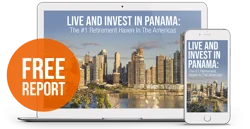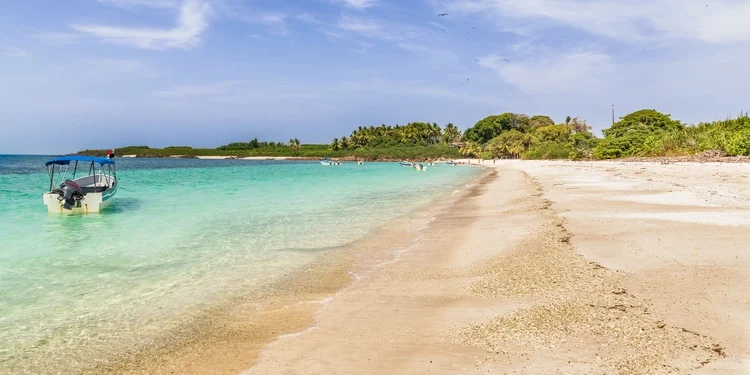Chitré is a traditional corner of Panama and my favorite part of this country. It also took the top spot in Panama in the just-released 2024 Overseas Retirement Index.
Here’s why, in my opinion, it beats out every other option on this isthmus…
Located in the center of the country, also known as “the interior”, Chitré sits in the Azuero Peninsula, halfway between Panama City and David, Chiriquí.
Most expats in Chitré have come looking for a slower pace of living, it’s one of the major benefits of moving here. Those that choose to live here do so because they enjoy country living and embrace Panamanian culture. That said, you’ll find every big city convenience at hand here, from banks to hardware stores and most everything in between.
My wife, Carolyn, and I live (very) comfortably on a budget of $2,000 a month.
Our biggest expense is traveling— we spend more on airplane tickets, hotels, and restaurants while traveling than what it costs us to live here.
Transportation costs could be minimal if you’re living right in the middle of everything Chitré has to offer.
Get by easily in your immediate area with grocery shopping at the city’s oldest open-air market, any of the many chinos (local convenience stores—they’re all owned by Chinese immigrants, hence the local terminology), or the local favorite—Machetazo (like a Walmart).
You could also lower your expenses by riding a bicycle everywhere. (Yes, some people really do this, despite the high stress level that must come with it.) A local bus ride costs about 35 cents… taxis are about $2.50 to get around town.
Want cheap eats? Easy… Fondas, parrilladas (open-fire grill joints), and food carts are the most cost-effective way of eating here in Chitré.
Some costs require a little extra consideration. Gas, for example. In most Panamanian homes, a small tank of gas is connected directly to the stove. In larger homes, a large gas tank (and usually a backup tank) is positioned outside the house.
A large tank costs about $80 and lasts us about six months. You’ll use it for cooking, water heating, and drying clothes.
Electricity is also expensive in Panama. Running air conditioning constantly in all rooms will quickly run your electric bill up to about $400. We only run the air conditioning in our bedroom at night (or when my wife must cool down), and our normal electric bill is $20 to $25 (which includes the jubilado discount).
Water is the exact opposite of electricity. We have the prettiest lawn, the cleanest car, wash lots of clothes… you name it, we run water, and it costs us just $5 a month.
Get Your Free Panama Report Today!
Simply enter your email address below and we'll send you our FREE REPORT - Live And Invest In Panama: The #1 Retirement Haven In The Americas.
Most rentals come furnished in Chitré, and the costs can vary from $400 a month for a two-bedroom, one-bath Panamanian-style house to $2,000 a month for an American-standard house.
Apartments start at about $200 a month going to $1,600 for the same choices.
We eat out about 13 times every month (and go to the movies with popcorn and soda once a month) and we’ve rarely gone over $200 for the month. (Granted, I don’t drink alcohol, but Carolyn will have a glass of wine or a cocktail.
Good medical care was Carolyn’s main concern when looking for a new home overseas. She insisted that we live within proximity of a very good hospital. Her worry was that I might need emergency services… just because I am a high-cardiac-risk patient who has already suffered a heart attack…
In Chitré we have two private hospitals. Hospital Cecilio Castillero (maternity hospital) and Hospital Gustavo Nelson Collado R. Caja de Seguro Social (CSS, Panama’s social security public health system) has two public hospitals: Policlínica Roberto Ramírez De Diego and Nueva Policlínica De Chitré.
Despite the horror stories sometimes told, the CSS provides excellent medical care. At times you may have to wait a long time to see the doctor… this is free public health care (not 100% free to gringos, but at a super-minimal cost)…
Carolyn and I have both used the public health services—in fact, it was at this public hospital that I met my first English-speaking doctor in the area.
Once, while experiencing an extremely rapid heart rate, I refused to go to the hospital (I wasn’t concerned, but Carolyn was livid with me). Afterwards, a friend explained that we could call the cardiologist and he would gladly come to our house.
Yes, doctors still make house calls here.
One of the best advantages to medical care here is the level of service you will receive. There has not been a single time when I was limited to a 15-minute-max office visit.
In Chitré, your doctor wants to know you… they are interested in your personal life, and it’s common to spend 10 to 15 minutes of the office visit catching up on the latest family news.
When I’m asked if you need to speak Spanish to live in Chitré my response is usually, “No, Speaking Spanish will not help you.”
“What language do they speak there in Panama?”
“Panamanian.”
There is a serious side to my funny response.
While Panama is a Spanish-speaking country, the language used here is distinct from standard Spanish. This is true of all Central and South American countries where Spanish is spoken.
Each county has their own idioms, sayings, and slang… just as you’d find between New York, Alabama, and California. Or better yet, the difference between British, Australian, Canadian, and American English.
A gringo needs to use caution as some words are considered offensive when used outside of the area of origin.
What you need more than language is patience. If you are willing to take the time, not be rude, not get upset, and—most importantly—not yell, then you will get through the conversation. Take things easy as you learn Panamanian Spanish.
If you show the desire to learn the language, locals will be more than willing to assist you.
It is remarkable how many locals speak English here, though. Some voluntarily speak it… others need a little encouragement.
Learn the local culture, customs, and language, it will truly transform your new life here.
Sincerely,
Dusty Tubbs
Contributor, Overseas Living Letter










